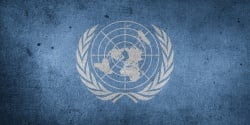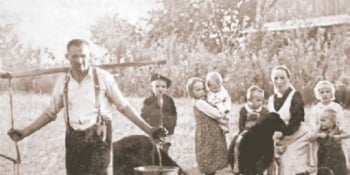Published: 29.03.2021

The United Nations Population Fund has published a manual on the implementation of ideological content in ‘out-of-school education’. The publication is part of a programme intended to ensure access to sexuality education to pupils who do not go to school on a regular basis, for example because of being home-schooled. Some educators are to be selected from the peer group of pupils. This may significantly limit the parents’ right to raise their children in accordance with their own beliefs. The Ordo Iuris has prepared an analysis of the document which indicates that the consequences of the sexuality education proposed by the Fund are different than those suggested in the manual. The numbers of abortions, sexual offences and venereal diseases among minors are growing.
The document supplements the ‘Comprehensive Sexuality Education’ (CSE) manual published by UNESCO in 2018. Despite the objections expressed by numerous countries at the General Assembly against making permissive sexuality education an international standard, the Population Fund (UNFPA) does not cease to promote it on all the possible levels. The goal of the new manual is to implement the out-of-school CSE programme in order to make sexuality education available to children and youth, also to those who, for some reasons, do not attend school on a regular basis (e.g. are home-schooled). The vision of permissive sexuality education proposed in the manual is directly founded on the ideological and scientifically unsound concepts of gender and ‘sexual and reproductive rights’ that are not grounded in the current law.
Even its authors admit that the ‘gender-based’ concept of sexuality is not generally accepted in schools. Implementing the programme in an out-of-school context will make it possible to circumvent school curricula that hinder the ideological indoctrination of children. Educators will be selected on the basis of such criteria as, for example, the gender they identify themselves with or their sexual preferences. Peer educators will play a particularly important role in the education process. Their goal will be to reach their peers with ideological content using the power of their peer influence.
The most controversial part of the ideological vision of human gender and sexuality promoted in the manual is the recommendation to ‘educate’ children in the spirit of the ideologically extreme gender concept, according to which human gender is merely a social construct and sexuality should be determined on the basis of subjective feelings. Combined with out-of-school sexuality education, the solutions proposed by the manual may significantly limit the parents’ right to raise their children in accordance with their own beliefs. The transparency of and control over such programmes is much more limited than in the case of school education.
The manual was developed in association with other UN agendas such as, for example, the World Health Organization (WHO), the United Nations Children’s Fund (UNICEF) and the Joint United Nations Programme on HIV/AIDS (UNAIDS). All these organisations include in their non-binding documents an ideologically extreme agenda that is often irrelevant to the original goals of the respective organisations. These postulates include, among others, promotion of abortion but also the demands of LGBT activists.

17.04.2025
• The Ordo Iuris Institute has prepared an opinion for the UN as part of a thematic report on surrogacy and its impact on the rights of women and children.

03.04.2025
• The Advocate General of the Court of Justice of the European Union (CJEU) has issued an opinion in a case involving a same-sex couple’s demand for their German marriage to be recognized as a marriage in Poland.

24.03.2025
On the 81st anniversary of the martyrdom of the Ulma family and the Jews they sheltered—who died at the hands of the German occupiers of Poland—the Ordo Iuris Institute is releasing a special commemorative infographic.

21.03.2025
• An Iranian national granted asylum in Hungary requested that her registered female gender be changed to male, indicating that she is transgender. Her request was denied due to the lack of surgical gender reassignment.